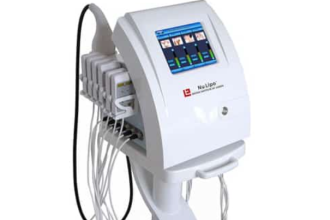The Cannabaceae family of flowering plants includes eleven genera and around 170 species. Medical researchers have looked at cannabis for several applications, including the treatment of chronic pain in adults. Recent statements from the National Academies of Sciences, Engineering, and Medicine support the use of cannabis for treating chronic pain in adults. The use of cannabis in reducing nausea and spasticity associated with cancer treatment and multiple sclerosis is supported by substantial evidence. In addition, it appears to have neuroprotective effects on Parkinson’s disease.
THC capsules treat Tourette syndrome
Tourette syndrome is a neurodevelopmental disorder that results in uncontrollable verbal and physical tics. Recent research shows that medical cannabis may alleviate the symptoms of Tourette syndrome in some people. Patients take medical cannabis capsules to treat the symptoms of Tourette syndrome. While there is no current cure for Tourette syndrome, the use of medical cannabis is promising for many patients. Several trials have been conducted.
CBD (Cannabidiol) is a chemical compound found in marijuana plants that have shown promise as a therapeutic agent for Tourette syndrome. It works by interacting with the brain’s endocannabinoid system, a network of receptors that control many bodily functions. Research has implicated the endocannabinoid system in the symptomatology and causes of many mental health disorders, including Tourette syndrome.
Cannabidiol is an effective treatment for anxiety
Studies on cannabidiol oil have shown it to reduce anxiety symptoms in some patients, including those with social anxiety disorder. However, more studies are necessary before we can fully establish whether this treatment is beneficial to everyone. However, it is a safe and effective option for treating anxiety. However, it is important to remember that people with a history of anxiety disorders should consult a healthcare professional before trying any new treatment.
While CBD oil has been proven effective in treating anxiety, there is a possibility of side effects. For this reason, it is recommended to start with a lower dose and experiment with different brands and products to find one that works well for you. Some less common side effects may include dry mouth and nausea, while the rarer but more serious ones include changes in heart rate and confusion. Additionally, it can interact with certain medications that may not be suitable for you.
Cannabis helps treat PTSD
Using medical cannabis to treat PTSD has many benefits, but the dosage should be right for each patient. There are several strains of cannabis, and THC and CBD in particular may reduce symptoms. Some of these can be found in marijuana, and some are available exclusively to help people with PTSD. Read on to learn more. For more information, visit the Cannabistrategy Project website. This resource will help you find the right product for your needs.
During a recent study, researchers compared the symptoms of PTSD in marijuana users versus non-users. They found that marijuana users had a significantly higher decrease in symptoms than non-users, and their likelihood of no longer meeting diagnostic criteria for the disorder was twice as high. Although cannabis may be beneficial for a variety of other conditions, it is not recommended for post-traumatic patients who have heart disease, a history of psychosis, or are pregnant.
It may be neuroprotective for Parkinson’s disease
The anti-oxidant effects of both CBD and THC are consistent with anti-oxidant actions, suggesting that they may provide neuroprotection for people with PD. The anti-oxidant effects of both cannabis compounds may contribute to their neuroprotective properties. CBD, for example, increases the activity of a key enzyme in the body’s defence against oxidative stress. These effects suggest that CBD may also provide neuroprotection against degeneration of nigrostriatal dopaminergic neurons in patients with Parkinson’s.
There are few clinical trials conducted with cannabis in people with Parkinson’s disease. Few patients have been recruited for these trials and the results have been mixed. However, it has been shown to reduce motor symptoms and improve quality of life. Further, there have been no studies showing the long-term effects of cannabis, making further research necessary. In addition, cannabis has many adverse effects, and the findings are not definitive.
It helps treat chronic cough
If you are looking for an easy way to cure your chronic cough, consider using medical cannabis. Medical cannabis is a legal medicine that is used in many ways to treat various illnesses, including cough. You can get it in the form of pills or infused products. While smoking marijuana is one of the most popular methods of using marijuana, there are other ways to get medical marijuana.
Once more, it is worth noting that recreational marijuana has a similar effect. But, unlike recreational marijuana, medical cannabis is safe for both men and women. You may check The Entourage Effect to learn more about this!
Research shows that marijuana has beneficial effects on chronic cough. There are some side effects associated with smoking cannabis, but overall the effects are not severe. It can cause dependence on the substance. The positive effects of medical marijuana are often felt by the sufferer. While it can cause addiction, the negative side effects of smoking cannabis may outweigh its benefits. And, remember that if you’re considering trying cannabis as a treatment for chronic cough, consult your doctor before making any changes in your treatment.















